| Anthology | ||||
|---|---|---|---|---|
 | ||||
| Compilation album by | ||||
| Released | 1997 | |||
| Genre | Pop | |||
| Length | 78:37 | |||
| Label | Hot Productions | |||
| Steve Alaimo chronology | ||||
| ||||
Anthology is a 31-track collection of songs that Steve Alaimo recorded during the sixties and seventies.
| Anthology | ||||
|---|---|---|---|---|
 | ||||
| Compilation album by | ||||
| Released | 1997 | |||
| Genre | Pop | |||
| Length | 78:37 | |||
| Label | Hot Productions | |||
| Steve Alaimo chronology | ||||
| ||||
Anthology is a 31-track collection of songs that Steve Alaimo recorded during the sixties and seventies.

Gerald Goffin was an American lyricist. Collaborating initially with his first wife, Carole King, he co-wrote many international pop hits of the early and mid-1960s, including the US No.1 hits "Will You Love Me Tomorrow", "Take Good Care of My Baby", "The Loco-Motion", and "Go Away Little Girl". It was later said of Goffin that his gift was "to find words that expressed what many young people were feeling but were unable to articulate."

Golddiggas, Headnodders and Pholk Songs is the ninth and penultimate album by The Beautiful South, released in 2004. It is almost entirely a covers album, with one notable exception. The track "This Old Skin" was originally claimed to have been written by Bobby Christiansand/Barry Klein, and to have been originally performed by an obscure band called "The Heppelbaums" in the 1970s, but it was later revealed to have been an original composition by the usual Beautiful South writing team, Paul Heaton and Dave Rotheray. This was confirmed in 2006 by frontman Paul Heaton during a Question and Answer session entitled "Ask the Band". Prior to that, a website for The Heppelbaums had been created, in which many more clues to the real identity of the band were revealed. The domain was created on 5 August 2004 and registered to Sony, the band's record label. Although the website no longer exists, the contents can still be found on Archived 7 May 2006 at the Wayback Machine

Hour Glass is the debut studio album by the group of the same name, issued in October 1967 on Liberty Records, the first of two by the group that featured the namesakes of The Allman Brothers Band.
Dan Penn is an American songwriter, singer, musician, and record producer, who co-wrote many soul hits of the 1960s, including "The Dark End of the Street" and "Do Right Woman, Do Right Man" with Chips Moman and "Cry Like a Baby" with Spooner Oldham. Penn also produced many hits, including "The Letter", by The Box Tops. He has been described as a white soul and blue-eyed soul singer. Penn has released relatively few records featuring his own vocals and musicianship, preferring the relative anonymity of songwriting and producing.

Love Makes the World is the 16th studio album by Carole King, released in 2001. Distributed by Koch Records, it was her first release on her Rockingale Records label. As of 2021, it is her most recent album of new material.
Dewey Lindon "Spooner" Oldham is an American songwriter and session musician. An organist, he recorded in Muscle Shoals, Alabama, at FAME Studios as part of the Muscle Shoals Rhythm Section on such hit R&B songs as Percy Sledge's "When a Man Loves a Woman", Wilson Pickett's "Mustang Sally", and Aretha Franklin's "I Never Loved a Man ". As a songwriter, Oldham teamed with Dan Penn to write such hits as "Cry Like a Baby", "I'm Your Puppet", and "A Woman Left Lonely" and "It Tears Me Up".
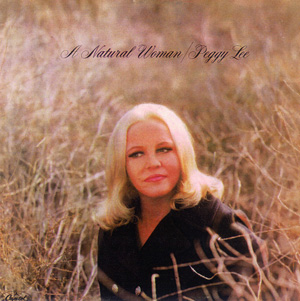
A Natural Woman is a 1969 album by Peggy Lee. It was arranged and conducted by Bobby Bryant and Mike Melvoin. John Engstead took the cover photograph.

Aretha's Greatest Hits is the third compilation album by American singer Aretha Franklin. Released on September 9, 1971, on Atlantic Records, the compilation contains three new recordings: "Spanish Harlem", "You're All I Need to Get By" and "Bridge Over Troubled Water".
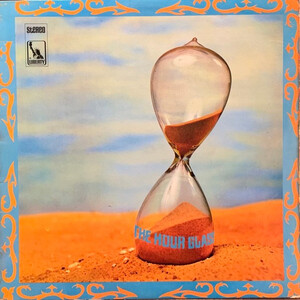
Power of Love is the second studio album by Hour Glass, issued in March 1968 on Liberty Records, the final by the group with the namesakes of The Allman Brothers Band. After the failure of their first album, Liberty Records allowed a greater independence for the group, who had been virtually shut out of the decision making for their first album by the label and producer Dallas Smith. However, with the label's decision to retain Smith as producer, the group, especially Duane Allman, once again felt constricted by their label's expectations for the album.
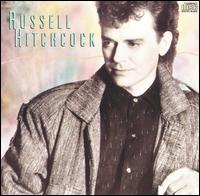
Russell Hitchcock is the self-titled debut album by Russell Hitchcock, best known as the lead singer of Air Supply, released in 1988. The album did not reach the charts, though singles "Someone Who Believes in You", "I Can't Believe My Eyes" and the covers "The Sun Ain't Gonna Shine Anymore", "What Becomes of the Brokenhearted" and "Where Did the Feeling Go?" had minor recognition.

Heartaches and Harmonies is a compilation box-set CD by the rock and roll duo The Everly Brothers, released in 1994. It contains 103 songs spanning from a 1951 radio performance of "Don't Let Our Love Die" through 1990. It contains their early Cadence hits and a large representation of their Warner Bros. output. Alternate takes and less-successful singles are also included.
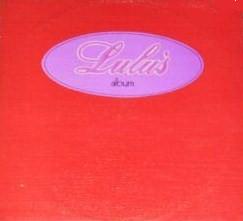
Lulu's Album is an album by British pop singer Lulu, released in 1969. Despite promotion from her TV show, Lulu and recently winning the Eurovision Song Contest, this album failed to chart. Her biggest British solo hit, Eurovision winner "Boom Bang-a-Bang", was not included on the album despite recently hitting No.2 in the UK singles chart. The song that placed 3rd in the A Song for Europe heats, "Come September" was featured on the track list. It was her last album with producer Mickie Most, who had guided her career successfully through the late 1960s. Lulu's Album contained an array of cover versions from recent pop and rock hits, which was common practice for many female artists at this point. Following this, Lulu was to change musical style for the next few years to a more credible and mature approach.

Aretha's Gold is a greatest hits album by Aretha Franklin, released in 1969 at Atlantic Recording Corporation. The album's tracks were recorded at Atlantic Studios, New York City, except "I Never Loved a Man " and "Do Right Woman, Do Right Man," which were recorded at the Fame Recording Studios, Muscle Shoals, Alabama.
"Where You Lead" is a song written in 1970 by Carole King with lyricist Toni Stern, introduced on King's iconic 1971 album Tapestry. A Top 40 hit for Barbra Streisand in both a studio and a live version — the latter in a medley entitled "Sweet Inspiration/ Where You Lead'" — the song has also served as the main theme song for The WB dramedy series Gilmore Girls in a lyrically revised version recorded by King and Louise Goffin. That same lyrically revised version was sung by the character Joe, accompanied by his son, a children's choir and his mother in episode 12 of the NBC show Ordinary Joe.
Lesley Gore: It's My Party is a five disc box set from Bear Family Records released June 21, 1994, that includes every Mercury Records release by Gore between 1963 and 1969. It also includes foreign language versions and never-released songs.

"Cry Like a Baby" is a 1968 song written by Dan Penn and Spooner Oldham, and performed by The Box Tops. The song reached #2 in April 1968 on the Billboard Hot 100 chart, a position it held for two weeks. It was kept out of the top spot by Bobby Goldsboro's "Honey", which stayed at #1 for five weeks. "Cry Like a Baby" also reached #2 on Cashbox for one week. It stayed on the Hot 100 for 15 weeks and Cashbox for 14 weeks. It was awarded a gold disc for selling over one million copies in the United States.

Golden Hits is the first compilation album by the American rock band the Turtles. It was released on White Whale Records.

Cry Like a Baby is a 1968 album by the Box Tops. The title song was released as a single and reached #2 in April 1968 on the Billboard Hot 100 chart, a position which it held for two weeks. It was kept out of the top spot by Bobby Goldsboro's "Honey".
The Best of Herman's Hermits: The 50th Anniversary Anthology is a 2-CD set by British group Herman's Hermits, released in 2015 on Bear Family Records. The set was produced and compiled by Grammy-nominated producer Ron Furmanek and includes the band's greatest hits along with demos, stereo mixes and session outtakes.
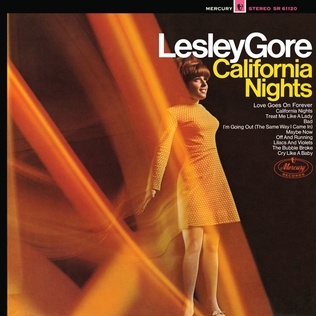
California Nights is a 1967 album by Lesley Gore, the last of her seven albums released on the Mercury Records label. The title track on the album, California Nights, peaked at #16 and was Gore's last Top 20 hit. Bob Crewe produced seven of the tracks on the album, while Quincy Jones produced three. The album was reissued in 2015 as part of a compilation in both album and CD format by Ace Records, which included 15 bonus tracks from her Mercury catalogue.